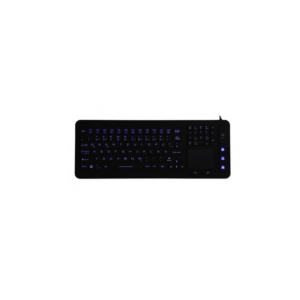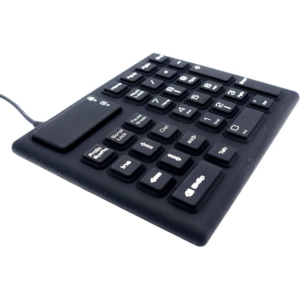The Rubber Backlit Keypad, also known as a rubber backlight keypad, is crafted from elastomeric transparent silicone rubber materials with varying toner ratios. To achieve optimal backlit effects, additional processes such as laser etching, PU coating, color spraying, and matte surface treatments may be applied. These reliable switch components are widely used across various industries, including automotive, electronic communications, POS terminals, remote controls, medical devices, smart home systems, and mechanical electronics.
Specification
Material: silicone rubber
Color: transparent or any colors
Hardness: shore A 30°~80°
Size: customized size
Tolerance: based on customer’s requirement
Printing: silk screen, radium carving
Molded Way: compression molded
Conductive Way: carbon pills, conductive ink printing, metal domes, metal pills
Surface Protective: PU coating, matte smooth coating, epoxy coating
Performance: aging resistance, cold resistance, heat resistance, chemical stability, waterproof, eco-friendly, durable
Certificate: ISO9001-2015, IATF16949, ROHS
OEM: available
Samples: free available samples
Packing: PE bag & carton, customized packing
Logo: silk printing, laser etching
Application: industrial, medical, automotive, consumer electronics, household, etc
The Manufacturing Process of Conductive Keypads:
- Design: Carefully design the conductive keypad, taking into account form, key layout, and structural integrity.
- Material Preparation: Gather and prepare materials, including conductive elements such as silicone rubber, carbon powder, metals, and the backing substrate.
- Conductive Layer Creation: Create the conductive layer through methods like blending silicone rubber with carbon powder or incorporating metal mesh.
- Printing Process: Utilize advanced printing techniques to accurately transfer key patterns and symbols onto the conductive layer.
- Assembly: Seamlessly integrate the printed conductive layer with the backing material, ensuring precise alignment of keys.
- Curing: Place the assembled conductive keypad in a controlled curing environment to ensure strong adhesion.
- Quality Control: Conduct thorough testing for sensitivity, electrical conductivity, and visual aesthetics to meet high-quality standards.
- Packaging: Carefully package the quality-tested conductive keypads to protect against contaminants and damage.
Reviews
There are no reviews yet.